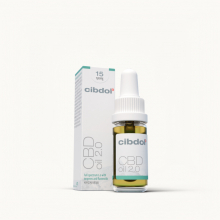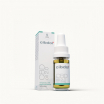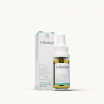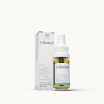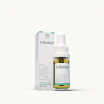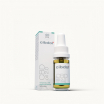How Long Does It Take For CBD To Work?
Published:
Cannabidiol (CBD) is becoming an increasingly popular wellness supplement. But if you’re new to using CBD, you may be wondering - how long does it take for CBD to work?
Contents:
- The Different Ways To Take CBD
- How Serving Size Impacts Onset Time
- How Your Body Chemistry Impacts Onset Time
- General Timeframes For Feeling CBD’s Effects
- Tips For Faster Onset Times With CBD
- How Long Do CBD Effects Last?
- When To Take CBD For Maximum Benefits
- How Long CBD Takes To Work
- Frequently Asked Questions
- How long do CBD gummies take to kick in?
- Does CBD work faster on an empty stomach?
- How long does it take to feel CBD vape?
- Why am I not feeling anything from CBD oil?
- Final Thoughts on Timing With CBD
- Summary
The amount of time CBD takes to work depends on several factors:
- The method of consumption
- Serving size
- Your body chemistry
In this blog post, we’ll explore these factors so you can learn how long it will likely take for you to start feeling the effects of CBD.
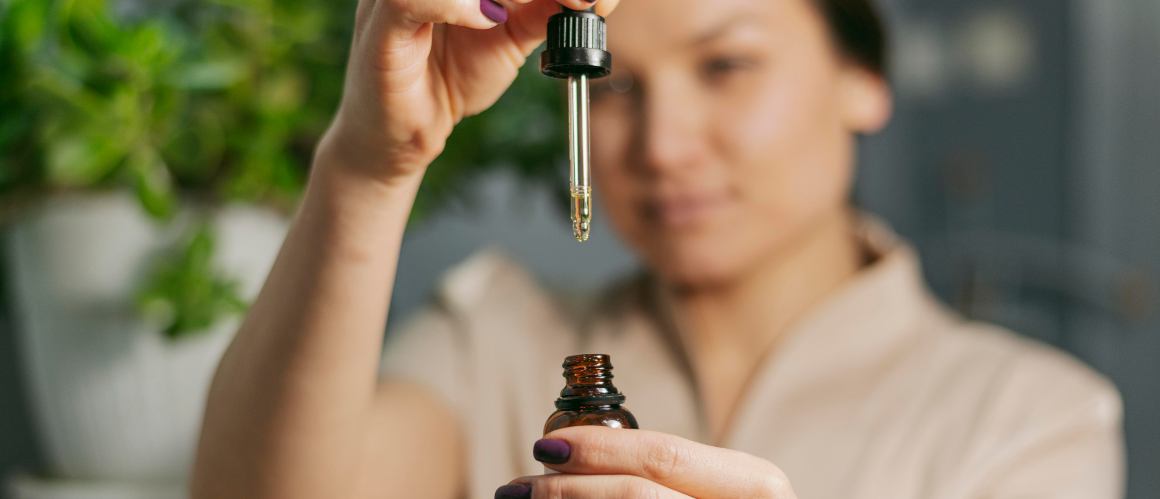
The Different Ways To Take CBD
CBD comes in many different forms - from oils and tinctures to capsules and edibles. The consumption method affects how quickly your body absorbs and experiences the effects of CBD.
Generally, consumption methods fall into two categories:
Sublingual
Sublingual consumption refers to products taken by mouth and absorbed under the tongue. This includes oils, sprays, lozenges and tinctures.
With sublingual administration, CBD enters the bloodstream through the mucous membranes in the mouth, bypassing the digestive system. This allows for faster absorption and effects.
Common sublingual methods and their onset time:
- CBD oil: 15-30 minutes
- CBD spray: 15-30 minutes
- CBD lozenges: 15-30 minutes
- CBD tinctures: 15-30 minutes
Sublingual products have a relatively fast onset time of 15-30 minutes, with effects lasting 4-6 hours.
Oral
Oral consumption requires swallowing or ingesting CBD through the mouth. This includes edibles like gummies and capsules.
When ingested orally, CBD goes through the digestive system and is metabolized by the liver before entering the bloodstream. This lengthy process means oral CBD takes longer to kick in, but effects typically last much longer.
Common oral methods and their onset time:
- CBD capsules: 45-90 minutes
- CBD gummies: 45-90 minutes
- Other CBD edibles: 45-90 minutes
Oral administration has a slower onset time of 45-90 minutes. However, effects are much more prolonged and can last 6-12 hours.
Inhalation
Inhaled CBD is absorbed through the lungs directly into the bloodstream, allowing for ultra fast effects. Smoking or vaping CBD provides the quickest onset.
Common inhalation methods and their onset time:
- Vaping CBD e-juice: 1-5 minutes
- CBD flower smoking: 1-5 minutes
Inhalation is by far the fastest way to feel CBD, with effects setting in within 1-5 minutes after a couple puffs or vape hits. However, these effects fade faster than other methods, lasting 2-4 hours.
Now that you know about the different consumption methods available, let’s look at serving size.
How Serving Size Impacts Onset Time
Serving size has a major influence on how long it takes for CBD effects to set in.
Larger servings deliver more CBD to your endocannabinoid system, accelerating absorption into the bloodstream. A smaller serving size translates to a longer onset time.
As a general guideline:
- Low serving (5-15mg CBD): Effects may take 45-90 minutes to set in
- Medium serving (15-45mg CBD): Onset between 20-60 minutes
- High serving (45-90mg+ CBD): Effects likely felt within 15-30 minutes
Higher servings of CBD result in faster absorption and a shorter onset time. Lower servings mean it will take longer to feel the effects.
Now let’s look at how your unique body chemistry impacts onset time.
How Your Body Chemistry Impacts Onset Time
Every person metabolizes and reacts to CBD differently, based on factors like weight, diet, metabolism, genetics, and more. Your unique body chemistry affects how long it takes to feel CBD’s effects.
Here are some factors that may influence CBD absorption for you:
Your Weight
Heavier individuals typically need higher CBD servings to reach desired effects. With a lower serving based on weight, it likely takes longer to feel the effects of CBD.
Your Metabolism
A faster metabolism speeds up the conversion of CBD in the liver, allowing you to feel effects faster. Those with slower metabolisms may need to wait longer to experience CBD’s benefits.
Food Intake
Consuming CBD on an empty stomach leads to faster onset times. Eating slows down absorption, delaying effects for 45-90 minutes. For quicker effects, take CBD before eating.
Genetics & Endocannabinoid Tone
Genetic differences account for variations in onset times. Your endocannabinoid tone also influences how quickly your ECS receptors uptake CBD.
Frequency of Use
For new CBD users, it may take time to feel effects. But with sustained use, many people report faster onset times.
As you can see, many different factors impact how fast CBD kicks in for you. Now let’s look at general timeframes you can expect to experience benefits.
General Timeframes For Feeling CBD’s Effects
While precise timing differs based on serving, method, and body chemistry, here are some general timeframes for when the effects of CBD may set in:
- Sublingual: 15-30 minutes
- Oral: 45-90 minutes
- Inhalation: 1-5 minutes
- Topical: 15-30 minutes
For most people, maximum effects are felt 1-2 hours after consumption. The duration of effects depends on dosage and frequency of use.
First time CBD users often don’t feel anything for the first few uses. This is likely because low doses build up in your system gradually. With sustained use, effects become more pronounced.
Over time, you’ll learn how your body responds to CBD and the optimal timing for you. Being patient and attentive to how you feel will help you dial in what works best.
Now that we’ve looked at onset times, let’s explore the different benefits CBD can provide and when you may notice them:
Tips For Faster Onset Times With CBD
Here are some tips to help you experience faster effects when using CBD:
- Take CBD oil sublingually by holding it under the tongue for 1-2 minutes before swallowing. This maximizes absorption in the mouth.
- Vaping or smoking CBD flower provides the fastest effects, as CBD rapidly enters the bloodstream through your lungs.
- Use a high potency CBD product with a high concentration per serving. More CBD means faster absorption.
- Take CBD consistently. With sustained use, you’re more likely to notice faster effects over time.
- Double your serving size if you aren’t feeling desired effects after 30-60 minutes.
- Avoid taking CBD with high-fat meals which can delay absorption and onset.
- Opt for nano-emulsified CBD, which breaks down CBD oil into tiny droplets for enhanced bioavailability.
Following these tips can help shorten onset times. But be patient, start low, and give your body time to register CBD’s effects.
How Long Do CBD Effects Last?
Now that you know how long it takes CBD to kick in, how long do the effects last once felt?
Again, this depends on several factors:
Consumption method - Inhalation provides the shortest lasting effects at 2-4 hours. Oral ingestion leads to the longest effects at 6-12 hours.
Serving size - Higher servings provide longer lasting effects. Lower servings lead to shorter duration of effects.
Frequency of use - For new users, effects may last shorter. With sustained use, duration of effects is extended.
Your body chemistry - Metabolism, weight, genetics and other factors influence how long you feel CBD’s benefits.
In general, CBD effects are felt for 3-6 hours on average. To keep effects going all day, it’s best to dose multiple times spaced evenly throughout the day.
When To Take CBD For Maximum Benefits
Knowing when to take CBD depends on which benefits you’re seeking. Here are some guidelines for when to take CBD for different purposes:
- Morning: For energy, focus, and an alert mental state take in the AM.
- Midday: For relief from pain, anxiety or mid-day stress take at lunch or early afternoon.
- Evening: For relaxation and sleep, take 1-2 hours before bedtime.
- Anytime: CBD can be taken as needed for general health maintenance and preventative care.
You may find taking CBD a couple times a day works best - once in the morning and again before bed. For targeting acute symptoms like pain or anxiety, take as desired during the day.
Over time, observe when CBD works best for your needs and adjust dosage times accordingly.
How Long CBD Takes To Work
Here are the key takeaways to remember about how long it takes CBD to work:
- Onset time varies based on consumption method, serving size, genetics, and other factors.
- Sublingual and inhaled CBD kicks in fastest at 15-30 minutes, while edibles take 45-90 minutes.
- Higher servings lead to faster onset times; lower servings take longer to feel effects.
- New users may need to take CBD consistently for a week or more to feel effects.
- Maximum benefits are usually experienced 1-2 hours after dosing.
- Effects typically last for 3-6 hours, with oral ingestion providing the longest duration.
- Take CBD at different times of day based on which benefits you’re seeking.
Be patient when first trying CBD. Consider starting with a low dose and incrementally increasing until you find the best amount and schedule for your needs.
Over time, you’ll get a feel for how long it takes CBD to kick in and how long the effects last in your body. Finding the optimal serving size and frequency is key to experiencing the benefits of CBD.
Frequently Asked Questions
Here are answers to some common questions about how long it takes for CBD to work:
How long do CBD gummies take to kick in?
Since CBD gummies are ingested orally, effects typically take 45-90 minutes to set in. For faster relief, use a sublingual CBD oil alongside gummies.
Does CBD work faster on an empty stomach?
Yes, taking CBD oil on an empty stomach helps absorption and allows you to feel effects about 30-60 minutes faster compared to ingesting after a meal.
How long does it take to feel CBD vape?
Vaping or smoking CBD provides the fastest onset of 1-5 minutes. However, these effects fade within 2-4 hours requiring more frequent dosing to maintain benefits.
Why am I not feeling anything from CBD oil?
If you don’t feel any effects from CBD oil, try increasing your dosage incrementally every few days until you find the right amount for you. Also, take CBD consistently for at least 1-2 weeks to allow adequate buildup in your system.
Be sure to choose a high quality, potent CBD oil for best results. Check in with your doctor if needed.
Final Thoughts on Timing With CBD
As with any new supplement or medication, it’s important to be patient when first trying CBD. It can take some trial and error to find the serving sizes, schedules, and delivery methods that work optimally with your unique body chemistry and needs.
Start low and go slow by beginning with small doses of high quality CBD. Increase the serving size or frequency over time if needed. Make notes of when you dose and the effects felt to dial in an effective routine.
Consistency is key to experiencing maximum benefits from CBD. Allow at least 1-2 weeks of sustained use for CBD to build up and activate your endocannabinoid system.
With patience and attentiveness, you’ll soon discover the sweet spot for how much CBD to take, when to take it, and how long the effects comfortably last before requiring another dose.
What's the best way to take CBD for fastest effects?
The fastest way to feel the effects of CBD is by inhaling it through vaping or smoking CBD flower. Vaporizing CBD oil in a vape pen or dabbing CBD concentrate provides effects within just a few minutes. Smoking high-CBD strains of cannabis flower also provides near-instant effects. However, inhaled CBD doesn't last as long as other methods.
What food or drinks boost absorption of oral CBD oil?
Taking CBD oil along with certain foods and drinks can increase absorption levels in the body. For example, taking CBD oil with omega-3 rich foods like salmon, avocado, chia seeds, or walnuts may improve absorption. Coffee and coconut oil also help the body absorb CBD more efficiently when taken together.
How does CBD absorption differ between sublingual and swallowing?
With sublingual use, CBD enters the bloodstream through the mucous membranes under the tongue, providing more direct absorption. When you swallow CBD oil, it has to pass through the digestive system and liver which breaks it down. This means only 4-20% of swallowed CBD makes it into the blood, compared to 12-35% absorbed sublingually.
Should you take CBD oil before or after eating?
Taking CBD oil on an empty stomach about 30-60 minutes before meals maximizes absorption and speeds up onset time. When taken with food or after eating, CBD will take longer to kick in due to delayed digestion and breakdown in the stomach.
What causes delayed onset times with CBD oil?
Factors that can delay onset time include low serving sizes, ingesting CBD with fatty foods, having low endocannabinoid levels, or needing a higher dose based on weight and other factors. Genetics and tolerance levels also play a role in onset times.
How does CBD absorption differ if held under the tongue?
The longer you hold the CBD oil under your tongue before swallowing, the more gets absorbed sublingually. Try holding for 60-90 seconds if possible. This allows more direct absorption into the blood vessels under the tongue rather than getting metabolized through the liver.
Why do some people need higher doses of CBD oil?
Heavier individuals and those with higher tolerances often need a higher dose or concentration of CBD oil to feel effects compared to smaller people. Fast metabolisms and genetics also play a role in required CBD dosages. Start low and increase slowly to find the right amount for you.
What drink boosts CBD absorption the most?
Drinking cannabis tea, coffee, or fruit smoothies boosts CBD absorption more than water. The oils, fats, and compounds in these drinks help the body absorb cannabinoids. Avoid sugary drinks which can inhibit absorption, and avoid alcohol which amplifies CBD effects unpredictably.
Can I take too much CBD oil?
It's very rare to overdose on CBD. However, high doses of CBD oil may cause some side effects like diarrhea, changes in appetite, fatigue, and interactions with prescription medications. Start with the lowest dose on any CBD product and increase slowly over time. Discuss with your doctor if needed.
Summary
This article explores how long it takes for CBD to work and the factors that impact onset time. CBD can be consumed through various methods like oils, edibles, vaping which affect how quickly it kicks in. Sublingual oils and sprays provide the fastest effects within 15-30 minutes. Ingestible edibles and capsules take longer at 45-90 minutes. Inhaled CBD vaping provides near instant onset in just 1-5 minutes. Serving size also impacts onset times, with higher doses being absorbed faster. Your unique body chemistry including weight, metabolism, genetics and prior use affect CBD absorption too. For most people, maximum effects are felt within 1-2 hours. Duration of effects depends on dosage but generally last for 3-6 hours on average. Tips to reduce onset time include taking CBD oil sublingually, vaping, using high potency products and consistent use. Knowing when to take CBD depends on desired benefits. Tracking onset times and adjusting dosage can help maximize CBD's benefits.









